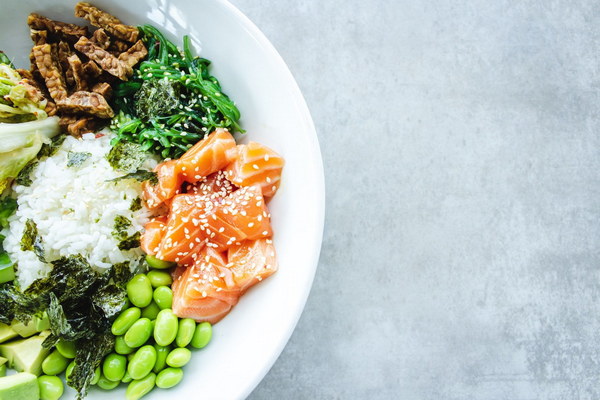Breathing Easy A Guide to Lung Care During the Pandemic
The COVID-19 pandemic has highlighted the importance of respiratory health more than ever before. With the virus primarily affecting the lungs, it is crucial to take proactive measures to keep your lungs healthy. Here are some tips on how to maintain lung health during these challenging times.
1. Practice Good Hygiene
One of the most effective ways to protect your lungs is by maintaining good hygiene. Wash your hands frequently with soap and water for at least 20 seconds, especially after being in public places or after coughing or sneezing. Avoid touching your face, especially your mouth, nose, and eyes, as these are entry points for the virus.
2. Wear a Mask

Wearing a mask can significantly reduce the risk of inhaling airborne particles, including the virus. Make sure to choose a mask that fits well and covers your nose and mouth. It's also important to wear it correctly, with the mask snug against your face and no gaps around the edges.
3. Stay Physically Active
Regular physical activity can help strengthen your lungs and improve respiratory function. Engage in moderate exercise, such as walking, jogging, cycling, or swimming, for at least 150 minutes per week. If you're new to exercise, start slowly and gradually increase the intensity and duration of your workouts.
4. Quit Smoking and Avoid Secondhand Smoke
Smoking is a leading cause of lung disease and can weaken your immune system, making it easier for respiratory infections to take hold. If you smoke, consider seeking help to quit. Avoid secondhand smoke, as it can also harm your lungs.
5. Manage Chronic Conditions
If you have chronic conditions such as asthma, COPD, or allergies, it's essential to manage them effectively. Work with your healthcare provider to create a personalized plan that includes medication, lifestyle changes, and regular check-ups.
6. Maintain a Healthy Diet
A well-balanced diet can support lung health. Include plenty of fruits, vegetables, lean proteins, whole grains, and healthy fats in your diet. Some specific foods that can benefit your lungs include:
- Garlic: Rich in allicin, garlic has been shown to have anti-inflammatory properties and can help boost the immune system.
- Turmeric: This spice contains curcumin, a compound that has anti-inflammatory and antioxidant effects.
- Leafy greens: Foods like spinach, kale, and Swiss chard are high in vitamins A, C, and E, which can help protect your lungs.
- Berries: Berries, such as blueberries, strawberries, and raspberries, are rich in antioxidants and can help reduce inflammation.
7. Stay Hydrated
Drinking plenty of fluids helps keep your respiratory system moist and can help prevent respiratory infections. Aim to drink at least 8 glasses of water per day, and adjust your intake based on your activity level and climate.
8. Practice Deep Breathing Exercises
Deep breathing exercises can help improve lung capacity and reduce stress, which can, in turn, benefit your respiratory health. Try the following exercise:
- Sit or lie down in a comfortable position.
- Inhale deeply through your nose, filling your lungs completely.
- Hold your breath for a few seconds.
- Exhale slowly through your mouth, completely emptying your lungs.
- Repeat this exercise for several minutes each day.
9. Get Adequate Sleep
Adequate sleep is essential for overall health, including lung health. Aim for 7-9 hours of quality sleep per night. Establish a bedtime routine, create a comfortable sleep environment, and avoid electronic devices before bed to improve your sleep quality.
10. Limit Exposure to Air Pollution
Air pollution can exacerbate respiratory issues. Try to minimize your exposure to pollutants by avoiding high-pollution areas, using air purifiers at home, and staying indoors during high pollution alerts.
By following these tips, you can help protect your lungs during the pandemic and beyond. Remember, maintaining lung health is an ongoing process, and it's essential to prioritize your respiratory well-being every day.








